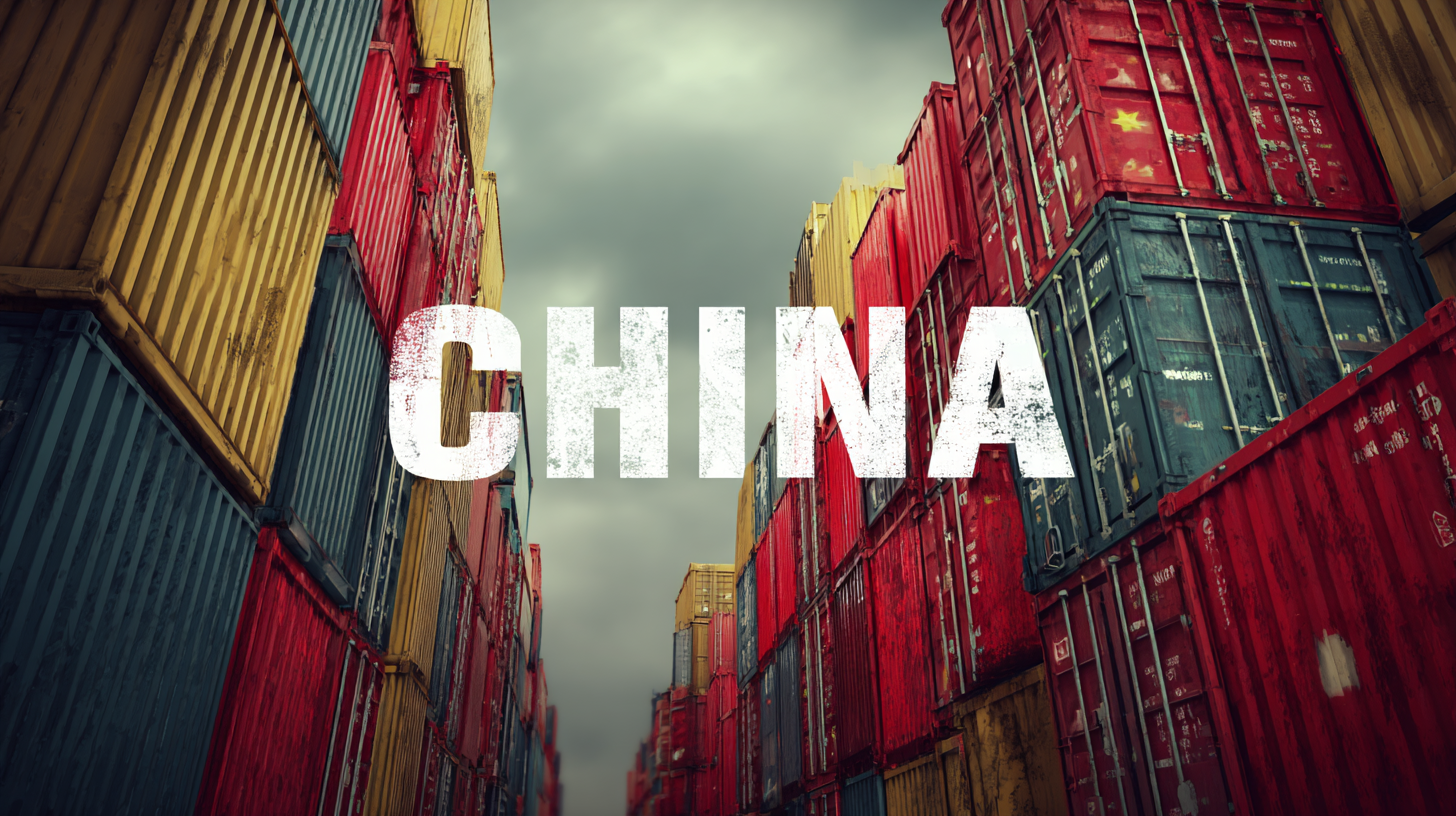
In today's global marketplace, finding top-quality suppliers is crucial for businesses aiming to succeed, and China has emerged as a pivotal player in this landscape. With its vast manufacturing capabilities, China is not only the world's largest exporter but also a hub for innovation and quality enhancement. According to a report by McKinsey Global Institute, China accounted for nearly 30% of global manufacturing output in 2022, underscoring its importance in the supply chain ecosystem. As companies increasingly seek to optimize their operations and reduce costs, tapping into China's extensive network of factories can provide significant advantages. In this blog, we will explore effective strategies for identifying reliable suppliers in China, ensuring that your business can leverage the strengths of Chinese manufacturing while maintaining high standards of quality and efficiency.

When it comes to sourcing products from China, the quality of your suppliers can make or break your business success. According to a report by the Global Sourcing Association, nearly 70% of businesses recognize that the quality of their suppliers directly impacts their overall competitiveness. Therefore, identifying key factors for choosing quality suppliers is essential. One crucial factor is the supplier's experience and track record in your specific industry. Established suppliers are more likely to have the expertise and resources required to meet your quality standards.
Another essential consideration is the supplier's compliance with international quality standards. The ISO 9001 certification, for instance, assures that the supplier adheres to strict quality management principles. Beyond certifications, on-the-ground inspections are invaluable; companies that implement regular audits report up to 40% fewer quality issues, according to research by the International Organization for Standardization.

When searching for top-quality suppliers in China, conducting thorough background research is crucial to ensure your business success. Understanding a supplier's credibility can save you from potential pitfalls and enhance your supply chain efficiency.
One essential tip is to verify the supplier's business licenses and certifications. A legitimate supplier should possess all necessary certifications relevant to their industry. Contacting the appropriate government agencies or checking online databases can help confirm these details. Additionally, seek out suppliers who have been certified by reputable third-party organizations, which can offer an extra layer of assurance about their practices and reputation.
Another important aspect is to investigate the supplier's track record. Look for reviews and testimonials from previous clients to gauge their reliability and the quality of their products. Engaging with other businesses that have worked with the supplier can provide valuable insights. Also, consider assessing how they handle communication and customer service during your initial interactions, as this can be indicative of their overall professionalism and commitment to quality.
| Supplier Type | Location | Years in Business | Min Order Quantity | Certifications | Average Lead Time |
|---|---|---|---|---|---|
| Electronics Manufacturer | Shenzhen | 10 | 500 units | ISO 9001, CE | 4 weeks |
| Textile Supplier | Guangzhou | 5 | 200 units | OEKO-TEX, GOTS | 3 weeks |
| Furniture Wholesaler | Foshan | 8 | 50 pieces | BIFMA, FSC | 6 weeks |
| Machinery Supplier | Ningbo | 15 | 10 units | ISO 14001, CE | 5 weeks |
| Footwear Manufacturer | Wenzhou | 12 | 100 pairs | BSCI, REACH | 4 weeks |
In today's competitive business landscape, securing the best supplier deals is crucial for operational success, particularly for companies looking to optimize their procurement strategies. Recent research indicates that effective negotiation can yield significant financial benefits, with organizations reporting savings of up to 20% when employing advanced negotiation tactics and tools. However, understanding which negotiation processes can be automated and which require human finesse is becoming increasingly important. As firms explore AI-driven solutions, they are discovering that machines excel at negotiating straightforward, rule-based contracts, allowing human negotiators to focus on more complex and relationship-driven discussions.
The introduction of platforms that bridge high-level strategy and tactical execution, like the DEALS approach, is revolutionizing supplier negotiations. Such tools empower procurement teams to streamline their processes and enhance their negotiation outcomes by integrating data analytics and strategy alignment. Moreover, with rising inflation leading to vendor negotiation challenges, companies are employing tried-and-true methods, such as transparent communications and collaborative problem-solving, to maintain favorable supplier relationships. Studies highlight that negotiation techniques rooted in trust and honesty can significantly improve deal outcomes, underscoring the importance of fostering strong partnerships in an increasingly volatile market.
The following chart represents the quality assessment of various suppliers in China based on key performance criteria such as product quality, delivery times, pricing, and customer service. This analysis helps businesses identify the best suppliers for successful negotiations.
Attending trade shows in China can be a game changer for businesses looking to discover top-quality suppliers. These events bring together manufacturers and suppliers from various industries, providing a unique opportunity to engage with them face-to-face. By participating in trade shows, you can assess product quality firsthand, negotiate terms directly, and build lasting relationships that go beyond mere transactions. Additionally, these exhibitions often showcase the latest innovations and trends, giving you insights that can help shape your sourcing strategy.
In parallel with physical trade shows, online platforms have revolutionized the way businesses find suppliers in China. Websites like Alibaba, Made-in-China, and Global Sources enable you to search through countless suppliers from the comfort of your office. These platforms offer extensive product catalogs, supplier ratings, and reviews, allowing you to conduct thorough background checks before making any commitments. Moreover, online communication tools facilitate instant dialogue with potential suppliers, enabling quicker decision-making and more efficient negotiations. By combining the in-person connections made at trade shows with the convenience of online platforms, businesses can strategically enhance their supplier discovery process.
Building long-term relationships with your Chinese suppliers is critical for achieving sustained business success. Unlike transactional interactions, forging strong partnerships can lead to better pricing, superior quality control, and improved communication. When suppliers feel valued and understood, they are more likely to prioritize your orders and meet your specific needs. This proactive approach to supplier management not only enhances reliability but also fosters innovation, as partners become invested in your success.
To nurture these relationships, it's essential to engage in regular communication and provide constructive feedback. Taking the time to visit your suppliers in person can significantly impact your connection, as face-to-face interactions help build trust and mutual respect. Additionally, understanding the cultural nuances in business practices can go a long way in establishing rapport. Celebrate milestones and acknowledge their efforts – these gestures solidify your commitment to a long-term partnership and encourage suppliers to reciprocate with dedicated support and service.

